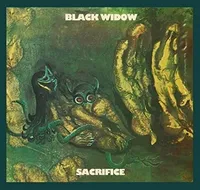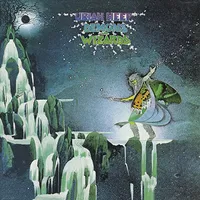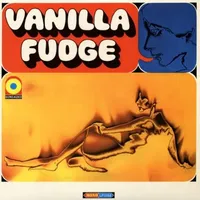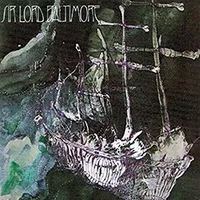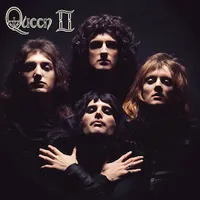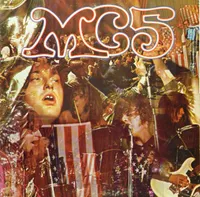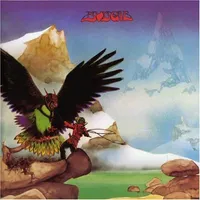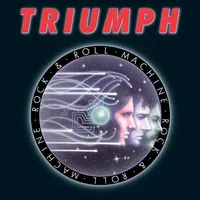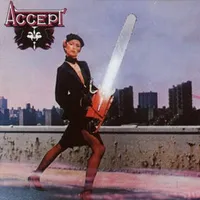The 30 albums that built heavy metal
The 30 albums that define heavy metal as we know it
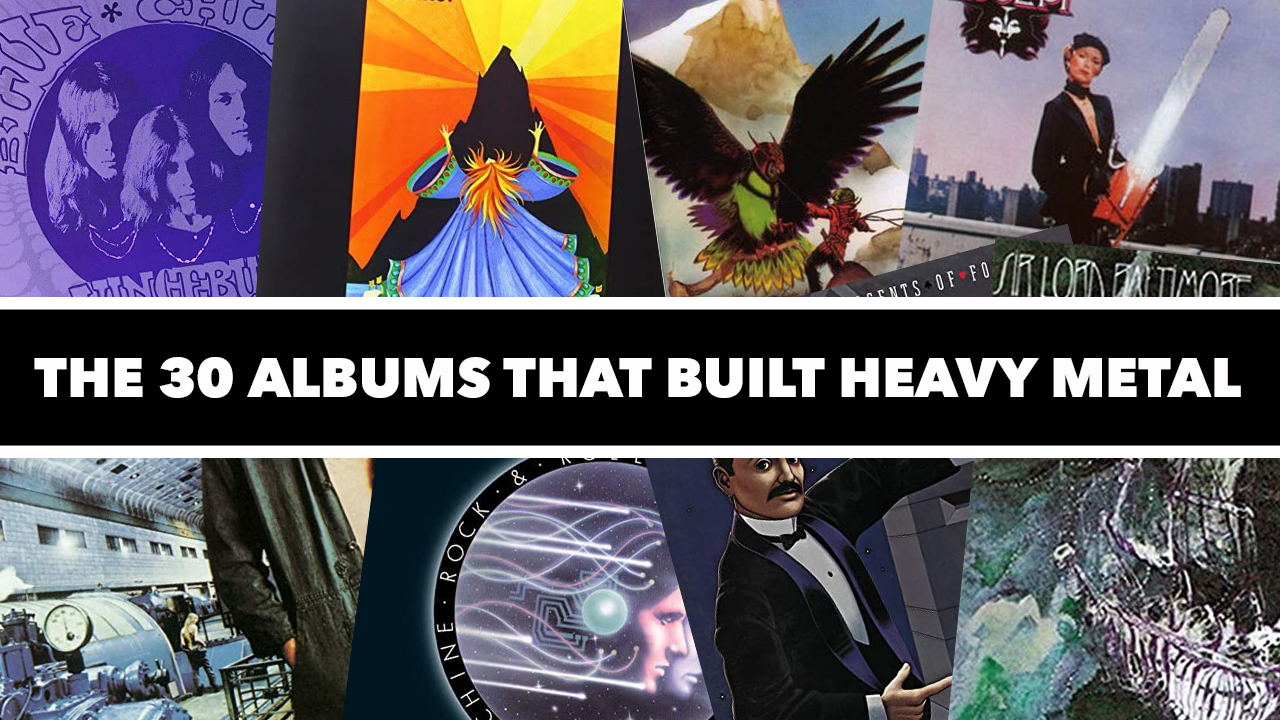
Heavy metal music is loud. Always has been. Always will be. Little wonder, then, that from Nazareth’s Loud ’N’ Proud to Pantera’s Proud To Be Loud, the history of the music is peppered with simplistic but heartfelt paeans to loudness.
But there's a lot more to heavy metal than just being loud. Metallica were recently voted the best metal band of all time by over 110,000 heavy metal fans. In many ways it's the perfect choice – their sound combines pummelling guitars, squalling solos, take-no-prisoners lyricism. But beyond the heaviness and noise there's also the deft songwriting, thoughtful hooks, irresistible riffs and a charismatic cast of characters. There's influences from classical music and a fearlessness for experimentation and innovation. Which is to say, their back catalogue neatly represents everything that makes heavy metal great.
But before Metallica – before thrash, before black metal, before even NWOBHM – were the bands who set out the templates, broke down the barriers and made it possible for the generations of bands who followed to go on smashing genre limitations and make metal music their own. Had it not been for the bands who established the genre's guiding principles, metal would sound very different today.
Below, the 30 albums that laid a foundation for heavy metal as we know it.
- The 15 best classic rock albums to own on vinyl
- The 10 best 90s rock albums to own on vinyl
- Block out noise with the best budget noise-cancelling headphones

30. Black Widow - Sacrifice (Columbia, 1970)
The debut album from one of the most notorious names in metal history.
Having released the Exclamation Point record the previous year when trading as Pesky Gee!, the Leicester band found their mark with a mix of primal, progressive rhythms and some altogether nasty occult overtures.
It all makes for an eerie atmosphere, with the celebrated Come To The Sabbat being the obvious flagship, while the title track, Conjuration and In Ancient Days are the spiritual forerunners of black metal. But it was the band’s re-creation of dark rituals on stage that really caused the sensation around this period.
29. Uriah Heep - Demons & Wizards (Bronze, 1972)
The fourth album from Uriah Heep was a crystallisation of all the elements that had made this British band special until 1972.
Its mixture of spacey-progressive rock, acoustic-themed moments and hard rock boogie shuffles was irresistible, even if, taken at face value, keyboard player Ken Hensley’s fantasy-oriented lyrics elicited a few chuckles.
The album is probably best known for the evergreen Easy Livin’ – a song that guitarist Mick Box and the rest of the band still can’t get away without performing live today – although it was in the near-13-minute song that provided the album’s climax, Paradise/The Spell, that all of the aforementioned ingredients were combined to maximum potency.
28. Iggy And The Stooges - Raw Power (Columbia, 1973)
Standing at the crossroads at which metal, punk and garage crashed head-on, this is an album whose influence and inspiration has grown over the years.
Check out just how loud the guitars have been cranked. Immerse yourself in the ferocious energy that’s sustained throughout. Some people have argued that The Stooges were never a metal band. Although strictly true, this comeback record, after several months on hiatus, has everything that was to propel the thrashers a decade later.
Songs like Search And Destroy, Gimme Danger and Shake Appeal are full of metal attitude. Amazing that David Bowie originally mixed it.
27. Vanilla Fudge - Vanilla Fudge (Atlantic, 1967)
Released a year before Led Zeppelin blasted into action, the Fudge are one of those crucial bands who mixed heavy blues, psychedelia and raucously progressive musicianship in a way that helped pioneer what we now regard as metal.
Vanilla Fudge played right on the limit, and in Carmine Appice they had a drummer whom even the late John Bonham respected. This debut album traded on covers – the best being hit single You Keep Me Hanging On, She’s Not There and Ticket To Ride – that were all slowed down to near doom pace, and given a hard-style treatment.
- Best record players: turntables your vinyl collection deserves
- Smaller budget? No problem! These are the best budget turntables
26. Sir Lord Baltimore - Kingdom Come (Mercury, 1971)
Many argue over exactly when the term ‘heavy metal’ was born as a musical reference. A Creem magazine review of this album from the Brooklyn trio was possibly its earliest use, and the music was certainly different.
The use of heavy distortion and multi-tracked guitars made it unusual for the era, as a result of which the band were overlooked, even though they opened for Black Sabbath. But subsequent reissues have introduced new generations to the band, and reinforced their pioneering importance. Mike Appel, who went on to manage Bruce Springsteen, co-wrote all the songs and co-produced the album.
25. Queen - Queen II (EMI, 1974)
Nobody would ever try to restrict Queen by suggesting they were a metal band, but in their early days this was a crucial part of their growing musical armoury.
The foursome’s second album is an epic, grandiose heavy testimony. Split into Side White and Side Black, the latter with songs written only by Freddie Mercury, the record displays a riffing intent from instrumental opener Procession. Father To Son, White Queen, Ogre Battle, March Of The Black Queen and Seven Seas Of Rye, meanwhile, are among the heaviest moments in the band’s long and distinguished career.
Queen would never be as consistently metallic again.
24. MC5 - Kick Out The Jams (Elektra, 1969)
While many people would suggest albums from Deep Purple, Thin Lizzy, UFO and others, it’s arguable that Kick Out The Jams is the greatest live album of all time.
Raw, in-your-face, savage and raging, it’s a devastating introduction to a band who had so much anger and frustration to get out of their system. Late frontman Rob Tyner’s introduction to the title track, using the word ‘muthafuckers’, caused outrage at the label, who tried to censor it (the band stood firm, which led to two versions being released).
The record, amazingly the MC5’s debut, is dripping with metal.
23. Budgie - Never Turn Your Back On A Friend (MCA, 1973)
Notwithstanding the support of Metallica, Welsh power trio Budgie are all too often lumped in with rock’s also-rans.
Never Turn Your Back…, the band’s third album, barely caused a ripple when it was released in 1973. Nevertheless Budgie were at their peak when they recorded it; the blistering Breadfan must rank as one of the greatest opening tracks on an album ever.
With frontman Burke Shelley’s chipmunk squawk predating Geddy Lee’s by a number of years, there’s also plenty of humour, especially on chundering but chucklesome offerings such as In The Grip Of A Tyrefitter’s Hand.
22. Triumph - Rock And Roll Machine (RCA, 1977)
The Canadian trio’s second album was first released in Canada in 1977. But when the band signed a deal with RCA Records and the album was released in America the following year, it also included tracks from their self-titled debut, which alas served to confuse fans somewhat over the years.
Triumph’s bombastic cover of Joe Walsh’s Rocky Mountain Way gave the band their first big hit, while the emphatic title track remains one of their best-loved songs, and Blinding Light Show referred to the sensational and often explosive live performances that were a Triumph trademark right from the start of their career.
21. Accept - Accept (Steamhammer, 1979)
On this debut album from one of the most important bands in the history of German rock, the band’s stoically regimented style – a prototype for the power metal revolution that would take place in that country years later – was immediately obvious.
Thanks to the pugnacious vocals of Udo Dirkschneider and the marching guitars of Wolf Hoffmann and Jorg Fischer, Accept quickly distanced themselves from fellow Germans the Scorpions.
Opening song Lady Lou quickly became a live favourite, while Helldriver and Street Fighter were testosterone-pumping anthems that became a benchmark for much of what that the band would achieve in the following 10 years.
Sign up below to get the latest from Classic Rock, plus exclusive special offers, direct to your inbox!
Geoff Barton is a British journalist who founded the heavy metal magazine Kerrang! and was an editor of Sounds music magazine. He specialised in covering rock music and helped popularise the new wave of British heavy metal (NWOBHM) after using the term for the first time (after editor Alan Lewis coined it) in the May 1979 issue of Sounds.
